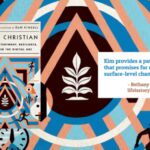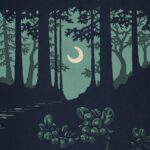Picking my favourite books for this year was a bit like picking a favourite child. I read about sixty books a year and across a wide range of genres: poetry, memoir, theology, psychology, Christian living, and fiction. But the best books reveal something beautiful or true, things you can draw on during the day. As such, this is the basis on which I’ve culled through my children.
Fiction
Demon Copperhead (Kingsolver) is my favourite fiction book of the year. It’s a rare book you call a masterpiece, but Demon Copperhead fits the bill. It is a compulsively readable doorstop that I recommended to everyone. Kingsolver took Charles Dickens’ 1850 classic, David Copperfield, and explores institutional poverty, single parenthood, and child labour in modern day Appalachia. The book follows Demon’s life as a child in foster care and the opioid crisis. Read it for Demon’s compelling, powerful voice; the fantastic story; and the insight, like into the plight of children in the foster care system.
Poetry
My favourite poetry collection is actually a book of prayers. The Valley of Vision: A Collection of Puritan Prayers (Bennett) is an antidote to the pace of our times. It is a relief to sink into these like a warm bath, to realise I’d never thought that deep about any of my prayers. These poems, like the Psalms, are rich and beautiful.
Christian Living
Forgive: Why Should I and How Can I? (Keller) wins my Christian living book of the year. I’ve read most of Keller’s books, but his final gift to the church made me cry, highlight, and text it to all my friends to get someone else to read it so I could discuss.
I would also be remiss not to mention The Rare Jewel of Christian Contentment (Burroughs). This Puritan book was based on a single verse and I’ve come across nothing like it in modern literature. Burroughs’ book not only convicted me of a pattern of discontent in my life but also expounded the scriptural medicine I required.
History and Philosophy
I want to be a person who reads dense history and philosophy books, but the fact is I am not a theology student, just a tired mother and psychologist who needs to understand these cultural changes. So, the joint winners of the Explain Like I’m Five Award, are Strange New World (Trueman) and How (Not) To Be Secular (Reading Charles Taylor) (Smith). Trueman whittled the ideas from his 432-page book Rise and Triumph of the Modern Self down to a very readable 208 pages. Trueman was inspired to do it after a colleague told him that people needed to read this book, but the people who should read it would not at 432 pages. I heartily concur. Similarly, Smith summarises Charles Taylor’s terrifying 896-page tome down to a gentle 148-page overview of the key ideas.
Non-Fiction
Create Anyway: The Joy of Pursuing Creativity in the Margins of Motherhood (Gadd) is an absolute delight. In each chapter, she draws parallels between the challenges in motherhood and creativity, including comparison, doubt, and imposter syndrome, and encourages us that we are made in the image of a creator God, who we image when we create. This beautiful book is packed with lyrical essays, resources, and journaling prompts.
Memoir
I know I am far behind the times reading Gay Girl, Good God: The Story of Who I Was and Who God Has Always Been (Hill Perry) given its publication six years ago. However, I finally got to read it and it is an absolute standout for two reasons. The first is the lyrical, poetic language, given Perry is a poet and a hip-hop artist. The second is the God in this book is the same God revealed in scripture and countless memoirs. The details of our sin may change, but God never does. This is such an encouraging testimony given the contentiousness of the current climate.















